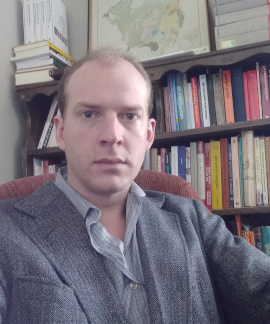Regna Darnell Distinguished Lecture in Theory, Ethnography and Activism in Anthropology
Language Vitality and Embodied Resilience in Oral Tradition:
The Fort McDermitt Paiute-Shoshone
 Thierry Veyrié, PhD
Thierry Veyrié, PhD
Director
Wayadeaga Apegan
Fort McDermitt Nonprofit Organization
Research Associate
American Indian Studies Research Institute
Anthropology Department
Indiana University - Bloomington
Short biography:
Dr. Thierry Veyrié is Research Associate at the American Indian Studies Research Institute (Indiana University - Bloomington) and Language and Traditional Culture Manager for the Burns Paiute Tribe in eastern Oregon. He started conducting fieldwork in Northern Paiute communities in 2012 when he was preparing his Master’s degree in sociocultural anthropology at the École des Hautes Études en Sciences Sociales (Paris, France). Between 2014 and 2021, while he was a Graduate Research Fellow and Instructor at Indiana University, he intermittently conducted field research in the oral traditions of the
Fort McDermitt Paiute-Shoshone community, recording new Paiute testimonies and translating existing recordings with Elders of the community. In 2017-2018, Veyrié spent thirteen months in McDermitt with the support of several significant grants including one from the Documenting Endangered Languages program of the National Science Foundation (BCS-1723388) and one from the Lewis and Clark Fund for Exploration and Field Research. His doctoral dissertation, A Historical Ethnography of the Fort McDermitt Paiute-Shoshone (2021, Anthropology Department, Indiana University), draws both from Paiute oral traditions and from the military correspondence held at the U.S. National Archives to propose an ethnohistory of the McDermitt community. Dr. Veyrié is actively involved in the revitalization and maintenance of the endangered Northern Paiute language and has been since a collaborative workshop he organized with McDermitt Elders that produced Wayadeaga Apegan, Language of the Rye-Grass Valley: A booklet containing materials to preserve and transmit the Paiute language (2018).








